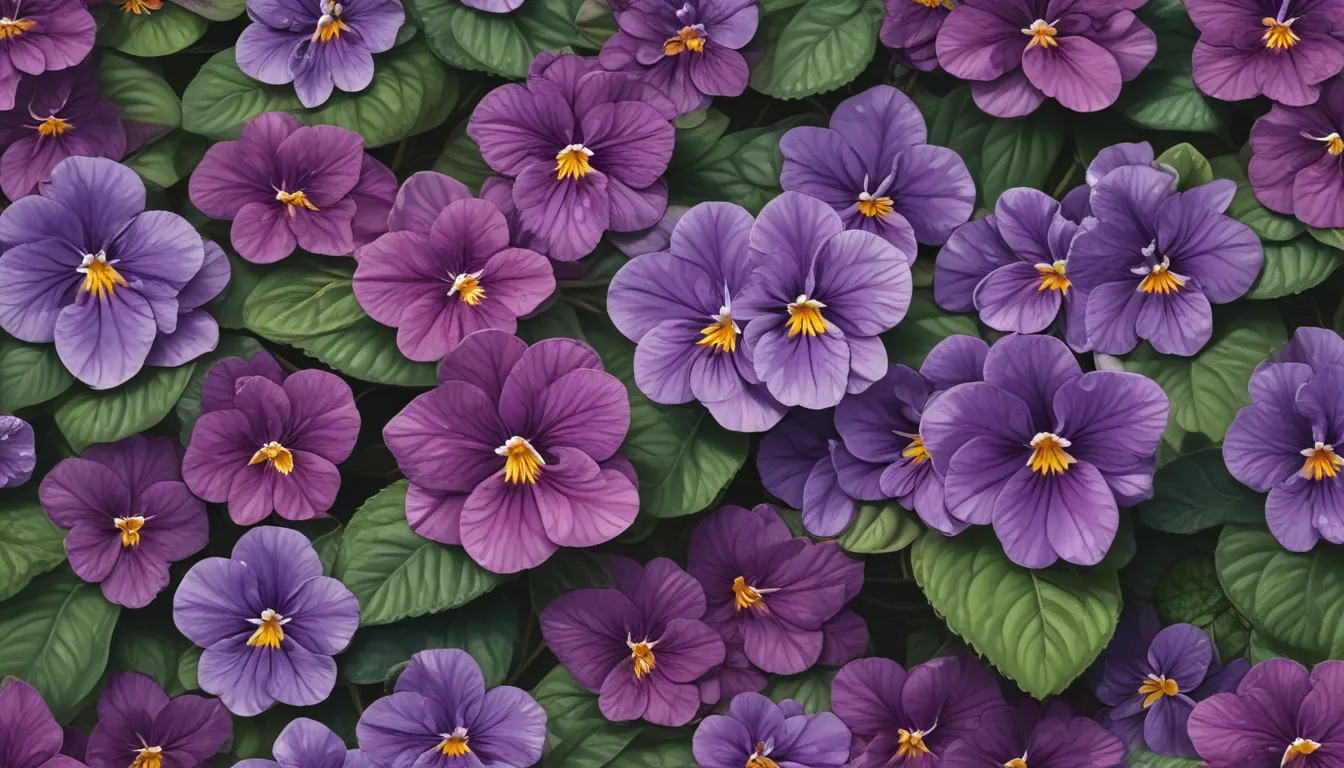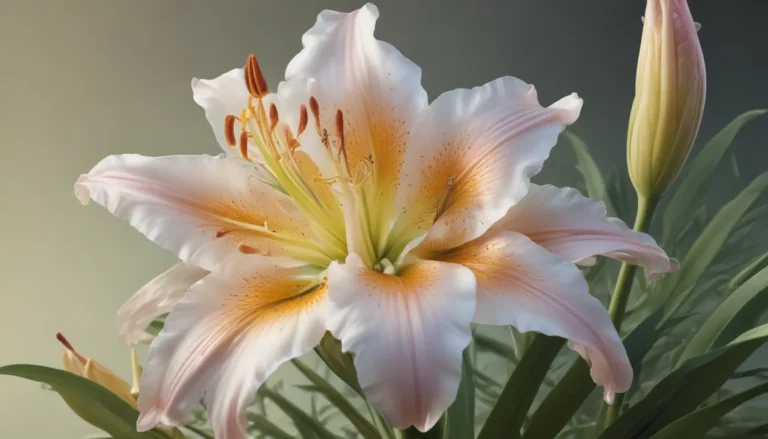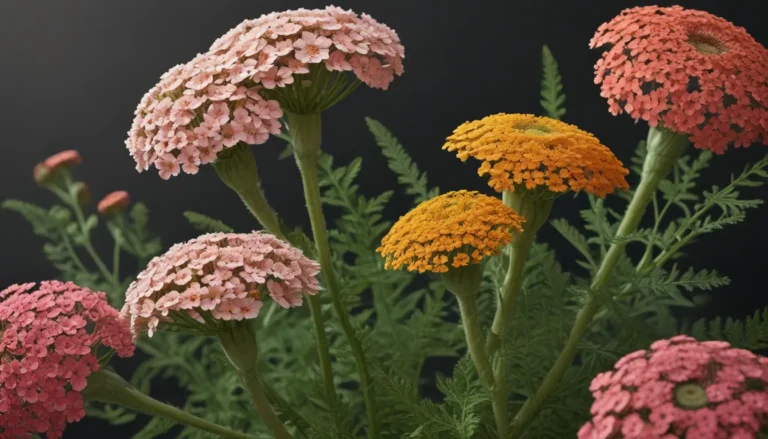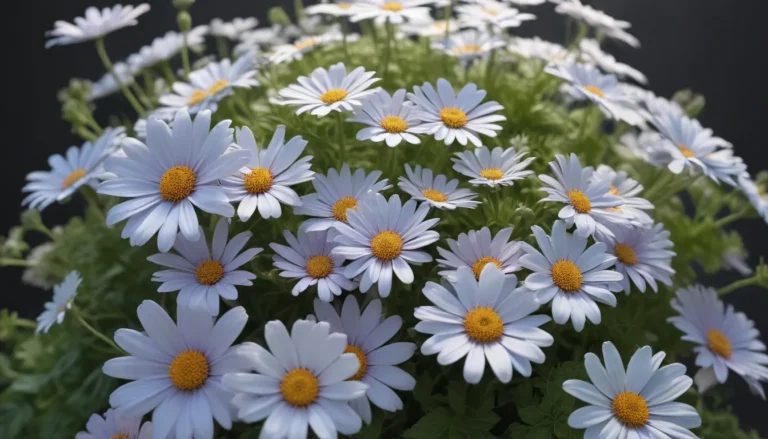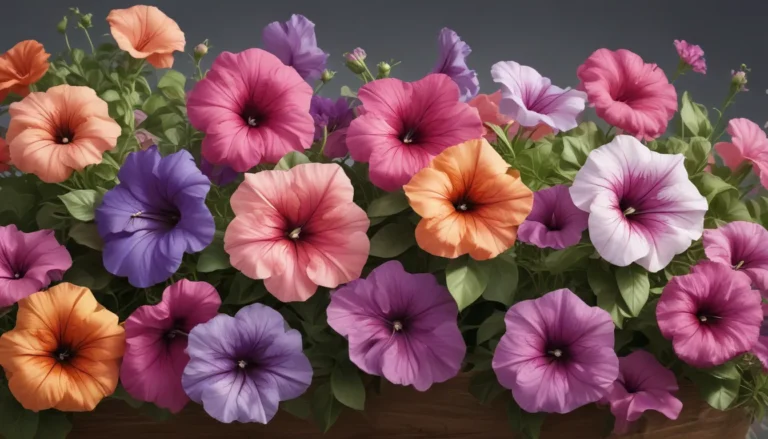The pictures we use in our articles might not show exactly what the words say. We choose these pictures to make you interested in reading more. The pictures work together with the words but don’t take their place. The words still tell you the important facts.
African violets, known for their delicate blooms and vibrant colors, have captured the hearts of plant enthusiasts worldwide. Despite their misleading name, these stunning plants are native to Eastern Africa and have a rich history that spans generations. Dive into the enchanting world of African violets as we uncover 15 surprising facts about these charming flowers. From their unique propagation methods to their diverse variety of colors and shapes, there is much to learn and love about African violets. Join us on this journey as we explore the versatility and beauty of these captivating plants.
The Misunderstood Beauty: African Violets Unveiled
Contrary to popular belief, the African Violet (Saintpaulia) is not a true violet. Belonging to the Gesneriaceae family, these plants hail from Tanzania and other countries in Eastern Africa. Despite their misleading name, African violets have become a beloved houseplant globally, captivating plant lovers with their charm and beauty.
A Rainbow of Diversity: Over 20,000 Varieties to Choose From
African violets boast an impressive array of over 20,000 registered varieties, ranging in shapes, sizes, and colors. From miniature violets with tiny leaves to large cultivars with striking variegations, there is an African violet to suit every plant enthusiast's taste and style.
Year-Round Beauty: Blooms That Never Fade
One of the most remarkable qualities of African violets is their ability to bloom all year round. With proper care and the right conditions, these plants can produce delicate flowers in shades of purple, pink, blue, and white, bringing a touch of elegance to any space.
Embracing the Light: The Ideal Brightness for African Violets
African violets thrive in bright, indirect light, making them perfect for placement near north or east-facing windows. This positioning allows them to receive the right amount of sunlight without the risk of scorching their delicate leaves.
Nurturing From Below: Watering Tips for African Violets
To prevent crown rot, a common issue for African violets, it's best to water them from below. Placing the pot in a dish of water allows the plant to soak up moisture through its roots, ensuring a healthy and thriving plant.
Draining Away Troubles: The Importance of Well-Draining Soil
African violets detest soggy soil, emphasizing the importance of planting them in a well-draining mix tailored specifically for their needs. This ensures adequate air circulation for the roots and prevents waterlogging.
Humidity’s Vital Role: Creating the Ideal Environment
Moderate to high humidity levels are essential for African violets to flourish. Enhance humidity by placing a tray of water near the plant or using a humidifier to maintain optimal growing conditions.
From Leaf to Life: Easy Propagation Techniques
Propagating African violets is a breeze with simple leaf cuttings. Snip off a healthy leaf and place it in a moist growing medium, watching as tiny plantlets emerge from the leaf veins, giving you new violets to enjoy.
Healing Beauty: African Violets in Folk Medicine
Traditionally used for their medicinal properties, African violets have been believed to treat various ailments, including headaches, skin conditions, and respiratory issues. While further research is needed, these plants undoubtedly bring a sense of well-being to any space.
Embracing the Outdoors: Thriving in Warm Climates
While commonly grown as houseplants, African violets can also thrive outdoors in warm climates. In regions with mild winters, these plants can adorn shaded areas or protected gardens, adding a pop of color to the landscape.
Beauty Beyond Blooms: Variegated Foliage Delights
In addition to their stunning flowers, African violets come in varieties with striking variegated foliage. These plants boast leaves adorned with colorful patterns, adding an extra layer of charm to their overall appearance.
Eternal Beauty: Lifespan and Longevity
With proper care, African violets can live for several years, bringing joy and beauty to indoor spaces. Their longevity makes them a rewarding addition to any plant collection, offering continuous blooms and vibrancy.
A Breath of Fresh Air: Improving Indoor Air Quality
African violets have been shown to filter harmful compounds like formaldehyde and benzene from the air, contributing to a healthier and more pleasant indoor environment. Enjoy cleaner air and the beauty of these plants in your home.
Fragrant Wonders: The Aroma of African Violet Blooms
While not all African violets produce fragrant flowers, some varieties delight with blooms that release a pleasant scent, filling your home with their enchanting aroma.
Cultivating Community: The World of African Violet Enthusiasts
Join a vibrant community of African violet enthusiasts worldwide through organizations like the African Violet Society of America. Connect with fellow plant lovers, access valuable resources, and share your passion for these remarkable plants.
Conclusion: Inviting African Violets Into Your Life
In conclusion, African violets are not just beautiful plants but also versatile and easy to care for. With their diverse varieties, medicinal properties, and air-purifying qualities, these plants offer a myriad of benefits for plant lovers of all levels. Whether you're a seasoned gardener or a novice enthusiast, African violets are an excellent choice for bringing natural beauty into your home.
Discover More: FAQs About African Violets
- How often should I water my African violet?
-
African violets prefer slightly moist conditions and should be watered once or twice a week, depending on temperature and humidity levels.
-
What kind of light do African violets need?
-
African violets thrive in bright, indirect light near windows or under artificial grow lights for optimal growth.
-
Do African violets require special soil?
-
African violets need a well-draining soil mix tailored to their needs, using ingredients like peat moss, vermiculite, and perlite.
-
How can I encourage my African violet to bloom?
-
Provide the right light, consistent temperature, proper watering, and balanced fertilizer during the growing season to promote flowering.
-
Can I propagate African violets?
-
Yes, African violets can be easily propagated through leaf cuttings, resulting in new plants within a few weeks.
-
Why are the leaves of my African violet turning yellow?
-
Yellowing leaves may indicate issues like overwatering, underwatering, or exposure to cold drafts. Adjust watering and temperature to maintain plant health.
-
Can African violets be grown outdoors?
- While best suited for indoor cultivation, African violets can thrive outdoors in mild climates with proper care and attention to climate conditions.
Embrace the Green Journey: Indoor Gardening for All
Embark on a green journey with African violets as your companions, exploring the wonders of indoor gardening. Dive deeper into the world of houseplants and discover the joy of nurturing and appreciating nature within your home. Whether you're seeking tranquility, beauty, or a creative outlet, indoor gardening offers countless benefits and opportunities for growth. Bring home an African violet today and experience the magic of greenery in your space.
Trust in Authenticity: Your Source for Engaging Facts
Our commitment to delivering credible and engaging content is unwavering, with each fact contributed by real users like you. Our dedicated editors rigorously review submissions to ensure accuracy and reliability, guaranteeing that the information we share is both fascinating and trustworthy. Explore, learn, and grow with us as we journey through the realm of intriguing facts and diverse insights together.
In the delightful world of African violets, beauty, versatility, and community await. Join the ranks of enthusiasts worldwide and immerse yourself in the enchanting universe of these captivating plants. Embrace nature, nurture beauty, and let African violets brighten your life with their vibrant charm and grace.
